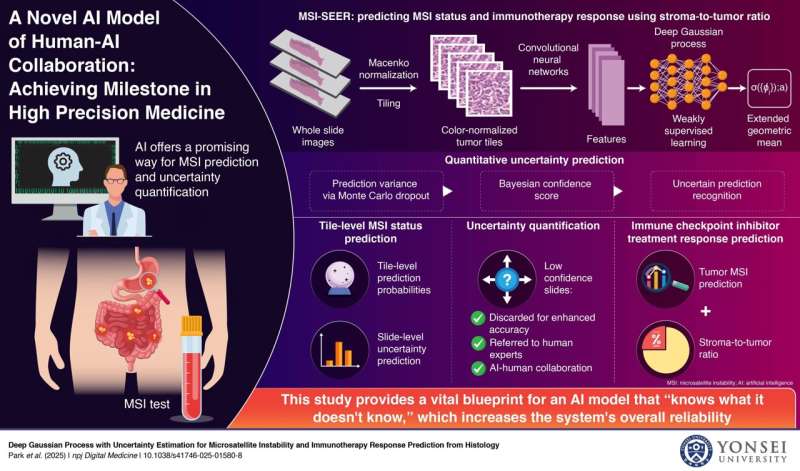The tumor microsatellite status has important clinical value because patients with microsatellite instability-high (MSI-H) cancers usually have more promising outcomes compared to patients with microsatellite stable tumors. Furthermore, tumors deficient in mismatch repair proteins—these are cells with mutations in specific genes that are involved in correcting mistakes made when DNA is copied in a cell—respond well to immune checkpoint inhibitors (ICIs) and not necessarily to chemotherapeutics.
Therefore, health practitioners and experts suggest MSI testing for newly diagnosed gastric and colorectal cancers. In recent years, artificial intelligence (AI) has made significant strides in this field and its incorporation in clinical workflow is expected to provide cost-efficient and highly accessible MSI testing.

